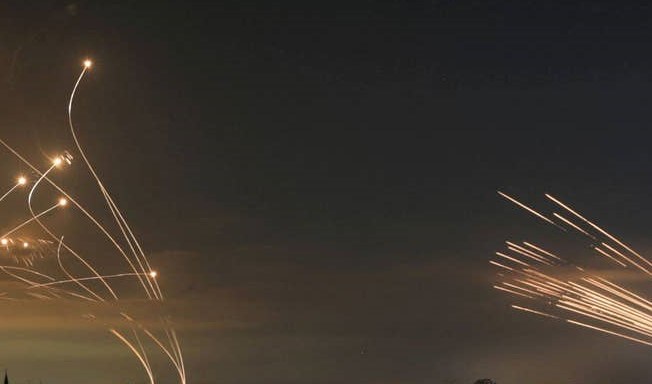The fragile and unconditional ceasefire which entered into force after 11 days of fighting between Hamas and Israel still holds but needs to become permanent to allow for the long-term reconstruction of the Gaza Strip and the prevention of recurrent outbreaks of violence.
“We cannot tackle the reconstruction of what was destroyed in the latest war only to face a period of calm which will be interrupted by a new cycle of violence,” said Peter Stano, EU lead spokesperson for foreign affairs, at a press conference in Brussels on Friday (28 May).
“The status quo isn’t sustainable. Security and peace for Israelis and Palestinians can only be achieved through a negotiated political solution. The root causes of the conflict must be dealt with by restoring the political horizon towards a two-state solution.”
He was referring to EU’s foreign policy chief, High Representative Josep Borrell, who said on Thursday, after an informal meeting of EU foreign affairs ministers that the international community, and in particular the EU, cannot continue reconstructing every two, three years what has been destroyed in a new wave of violence.
“That is why I insist on the need to start another process of peacekeeping, because the status quo is not affordable,” he added.
“No one can believe that the Palestinian question is over, it is not over. We can consider that the Israel-Arab question is over, because with the Abraham Agreements a lot of Arab countries have been recognising Israel, but the core of the problem between Palestine and Israel has not been solved.”
However, the High Representative is still absent from the region and has not visited it since he was appointed.
The US state secretary Anthony Blinken visited Israel, the West Bank, Jordan and Egypt last week to discuss the way forward with the American partners in the region. The foreign ministers of three EU member states, Germany, Austria and the Czech Republic, visited Israel on the last day of hostilities before the ceasefire.
Does Borrell also intend to travel to the region? Apparently not in the near future. He has been invited to visit Lebanon, another country where the situation in his own words is not sustainable, but only intends to do it in the coming month.
Instead, according to his spokesperson, he is sending the Dutch diplomat Sven Koopmans, the newly appointed EU Special Representative (EUSR) for the Middle East Peace Process, on his behalf to deliver the conclusions of the latest foreign affairs council. “He is travelling in the region and is very active in conveying EU’s messages to our partners there.”
According to media reports, Egypt has invited Hamas and Israel to conduct indirect talks in Kairo this week, via its mediation, on finding a formula for a sustainable ceasefire by reconciling the conditions of the two sides. Is EU also prepared to reassess the situation and involve Hamas in talks?
“Our position has not changed,” the EU spokesperson replied. “Hamas is a designated terrorist organsation and the policy of no contacts with Hamas still applies.”
Israel can hardly afford to stick to its previous policies and avoid talks, direct or indirect with Hamas, without risking that the ceasefire will unravel sooner or later. In fact, the current Israeli government bought temporary calm by allowing Qatar to transfer monthly amounts of cash to Hamas. Some of the money was diverted by Hamas to produce rockets and build an underground network of tunnels.
In the meantime, EU is caring for the immediate humanitarian needs in Gaza but seems to have no clue on how to contribute to a sustainable reconstruction while preventing Hamas from rearming itself, at the expense of the habitants in Gaza, and threatening again to launch indiscriminate rocket attacks against Israel under the pretext of defending Jerusalem.
The Brussels Times

